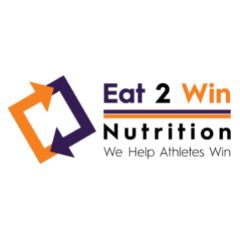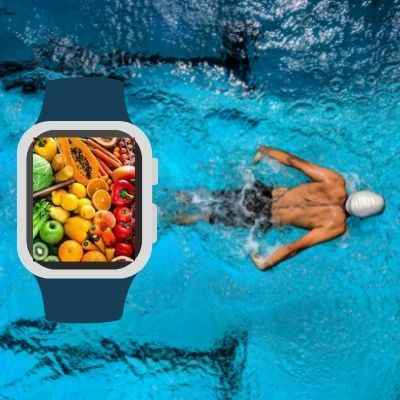Performance Nutrition for Competitive Swimmers
Swimmers have exhausting schedules. Many of these dedicated athletes practice multiple times each day in order to improve their speed, endurance, and technique. Given the large energy demands of their sport, competitive swimmers must learn about proper nutrition for swimmers in order to fuel their movement and to take their swimming to the next level. So how do top swimmers stay energized throughout a hectic day and what should swimmers eat?
The key is to provide their body with an adequate supply of nutrients throughout the day.
Here are 5 ways to ensure you achieve this:
1. Eat Frequently Throughout the Day
Although everyone’s body and metabolic rate is different, on average, it is recommended to eat every 3-4 hours. Focus on simple eating strategies, such as listening to your body’s hunger cues – but be mindful not to go too long without eating. As a swimmer, you likely burn a significant amount of calories each practice, so you must eat frequently in order to provide adequate energy (calories) for activity and promote recovery following exercise.
2. Pay Attention to the Quality of Your Food
Swimmers need to consume a variety of foods that are rich in vitamins and minerals to promote performance, recovery, and overall health. In addition to vitamins and minerals, each macronutrient plays an important role in your diet and fuels your body for optimal sports performance.
- Carbohydrates are an athlete’s primary source of fuel.
- Choose high-quality carbohydrates, such as whole grains, fruits, vegetables, and beans and legumes.
- Protein helps build and repair an athlete’s muscles.
- Great lean protein options include turkey or chicken breast (without the skin), fish, lean cuts of beef, nuts, seeds, eggs, Greek yogurt, and protein powder.
- Fat is necessary in our diet for digestion, metabolism, nutrient absorption, cognitive function, and as an energy source for exercise.
- Choose heart healthy fats such as avocado, olive oil, fish, nuts and nut butters, and seeds.
3. Focus on the Quantity of Food You are Consuming
Each athlete will require a different amount of calories so giving broad guidelines can be difficult. However, a great way to begin to portion out your meals is by using the Athlete’s Plate Method. Always start with ¼ of your plate being protein.
For more information on Athlete’s Plates, visit Team USA Nutrition.
4. Increase Your Fiber Intake
Fiber helps to slow down your body’s digestion and absorption rate, which will help you avoid a spike (followed by a crash) in energy. To increase the amount of fiber in your diet, add fruits, vegetables, legumes, and whole grain products into your snacks and meals. Remember: It’s important to increase fluid intake when adding fiber into your diet. Click here for more information on how to increase the amount of fiber you’re eating, as well as a list of fiber-rich foods.
5. Plan, Pack, and Be Prepared
Given swimmers’ hectic schedules, the best method for ensuring consistent energy levels is to plan, pack, and be prepared. Each night before you go to sleep, think about your schedule for the following day. Determine what food resources are needed and what is available. Then, plan and pack your meals, snacks, and drinks accordingly. When traveling or preparing for a long day, fill an insulated bag or small cooler with healthy, nutrient dense foods. Here are some easy snack ideas to keep you adequately fueled:
- Fresh fruit and low fat string cheese
- Whole grain waffle and nut butter
- Grilled chicken and spinach wrap
- Whole wheat pita with hummus
- Dried fruit and nuts
- Low fat cottage cheese and fruit
For more tips about the best foods to pack and eat on the go, click here.
Warning: Poor planning may force you to resort to eating convenience foods, such as chips, candy bars, and fast food – but these high-fat, highly-processed foods will not properly fuel your body for optimal performance. Planning ahead allows you to give your body what it needs for optimal athletic performance.
To dive deeper into the topic of nutrition for swimmers, go to www.myswimmingnutrition.com.
Here, you will find My Sports Dietitian’s eBook for swimmers, which provides information on the unique, science-based nutritional requirements of swimmers, sample eating plans, athlete-tested recipes, information on how to properly fuel for swim meets, and much more. By using this knowledge, along with real life tactics and techniques, you will be able to take your swimming to the next level.




Facebook comments